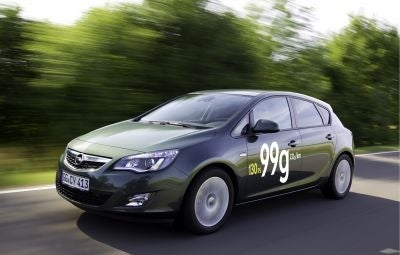The number of cars equipped with start-stop technology will soar in the coming years, according to a major battery maker.
Start-stop systems, which kill the engine when the vehicle is still and quickly restart it as the driver prepares to pull off, have proved increasingly popular with automakers battling with fuel economy targets in recent years.
It's estimated that the systems can reduce fuel use and emissions by between five and 12 percent, an impressive figure which has helped them make the hop from hybrids to fuel-efficient gas models such as the new Astra ecoFlex, which manages 99g/km in carbon dioxide emissions.
In the future though, the systems will be nearing standard, predicted Johnson Controls June 27, with overall start-stop battery systems sales reaching 35 million globally in the next five years.
The company said this week that it expects start-stop to be in 52-55 percent of vehicles built around the world by 2016, an astonishing leap from the 8 percent it was featured in last year.
In some regions, the technology will be even more popular, with 70 percent of European cars expected to be fitted with start-stop batteries, thanks in no small part to the low impact of the technology for consumers.
"Start-Stop vehicle technology is emerging globally as one of the most affordable options for consumers who want to buy a more fuel-efficient car for very little added cost up front," said Alex Molinaroli of Johnson Controls.

Join our commenting forum
Join thought-provoking conversations, follow other Independent readers and see their replies
Comments